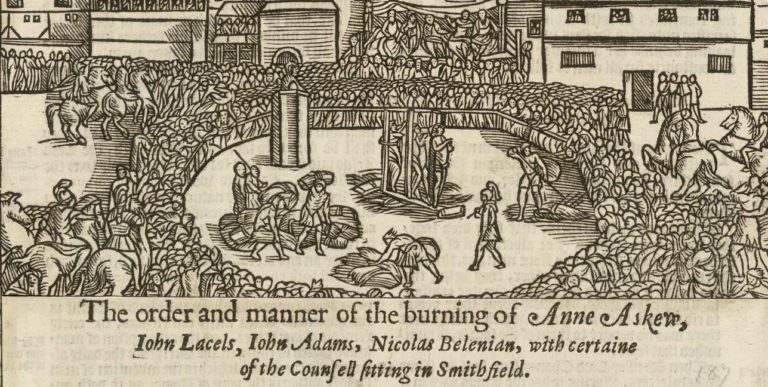I eyed Izzy before putting up the challenge, “Do you want to have a go? How would you score the whole book?”
Izzy and I had only been reading the Bible together for a little while. Izzy is a missionary kid, and a teaching and music student at the University of Queensland where I work for AFES.
“There are two musical notations in chapter three”, I had observed, silently thanking God for the prompts in the passage.
“Oh, you mean Selah?”, Izzy spotted Habakkuk 3:9.
“Oops, there are THREE musical notations in chapter 3! At the beginning, at the end and Selah. It was meant to be put to music.” I eyed Izzy before putting up the challenge, “How would you score the whole book?”
Izzy reacted immediately, as if firing off a pre–loaded answer, “Oh definitely the clarinet for Habakkuk’s voice. It’s the whiniest instrument.” She laid down the rest in quick succession.
The First Round of Negotiations Between Habakkuk and God
Hab 1:1–4—Habakkuk’s initial complaint, about God’s apparent inaction over human affairs.
“Low Strings, concerto with clarinet, upper middle octave.”
Hab 1:5–11—God responds to Habakkuk, revealing longer term, geopolitical plans.
“French horn soli for whole section, (the most majestic instrument), low for God’s voice.”
The Second Round of Negotiations
Hab 1:12–2:11—Habakkuk incredulous at God’s plan, even more devastated about injustice.
“Clarinet soli. Multiple second clarinet harmonics, Bass clarinet motif over.”
Hab 2:2–5—God’s reassurance of justice and survey of earthly sins.
“French horn (lower, getting darker) duet with trombone (lower supporting).”
Hab 2:6–20—God says five ‘Woes’, condemnation for various sins.
“All strings, more frantic. Each section different. Piccolo every so often over the top for each woe. To cut through, like a Greek chorus.”
Anticipating Habakkuk Chapter 3
“Before we explore chapter three… what do you expect?” I ask.
Izzy contemplates and hesitates, “Maybe the oboe again? It’s the clarinet on its best behaviour. Haunting and reminiscent of ‘Across the Stars’, the love theme from Star Wars Episode II (terrible movie, great soundtrack). Movement in minor, similar to the ‘Woes’? I expect Habakkuk to not be argumentative but scared, worried…? Looking to for God to comfort. Accepting and dreading what is coming—the exile. A more settled tempo? Chapter 3 is a picture of God who makes the nations tremble. Habakkuk is looking up at him.”
“Yeah” I nodded in agreement, “I would totally expect it to go that way, too… except that the first music notation, ‘Shigionoth’ means ‘exuberant rejoicing, passion, strong emotion’. This indicates that it’s party music. God literally changes Habakkuk’s tune.”
“Oh!!!”, Izzy exclaims, rapidly reading over the passage again while changing musical gears, “In that case, So… tubular bells, tympani. Oboe in transition. Flutes, lighter in texture, harmony drives strings. Transition to trumpets/trombones. French horn, like the ‘Great Municipal band’ from Star Wars Episode I.”
Habakkuk’s Prayer
We help each other to read chapter three again with fresh eyes and ears, feeling Habakkuk’s excitement at God’s revelation of his plans and of himself:
Hab 3:1–3
Like a hype man or a WWE Pro–wrestling announcer, “Ladies and Gentlemen, please welcome… To the arena! God himself… YaaaahWeeeeeH!! The reigning Champion to defend his title!”
Hab 3:4–9
God’s splendour, majesty and power. Everyone trembles, even the mountains. Waves of pestilence. Like Bambi going through the forest and the flowers are opening. But it’s God, and as he walks through he brings the plague! Remember EgYpT, anyone?!
Hab 3:10–13
Sun, moon, waters. God’s power in creation is seen in parallel to his dealing with God’s enemies.
Hab 3:14–16
God the warrior. I am in fear of you. Awe.
Hab 3:17–19
Habakkuk now knows that the LORD has a plan to punish people who punish Israel. He can see the LORD, so he gives up his argumenting (is that a word?) There is rejoicing, acknowledging God’s glory and sovereignty.
God didn’t have to let Habakkuk in on his plans. But he graciously does. And when Habakkuk hears what God will do, Habakkuk is thankful, sorry, and rejoicing. How much more can we rejoice knowing the full counsel of God? Knowing that God sent his final Champion, his Son. His victory over sin is more permanent, universal and somehow manages to save both his people and his enemies.
There is hope and joy, despite present and immediate future. Doxology displaces despair. Habakkuk starts off complaining and agitated, but he ends in assurance, security, and rest.
The Sovereign Lord is my strength;
he makes my feet like the feet of a deer,
he enables me to tread on the heights.
For the director of music. On my stringed instruments. (Habakkuk 3:19)
“This reminds me of a song from my childhood.” Izzy begins to sing the hymn based on Psalm 42, ‘As the Deer’ in Japanese. I can only join in in English. We pray and say goodbye, before Izzy hurries off to class.
I love my job.
To support the ongoing work of the local team at The Gospel Coalition Australia, make a donation here.












